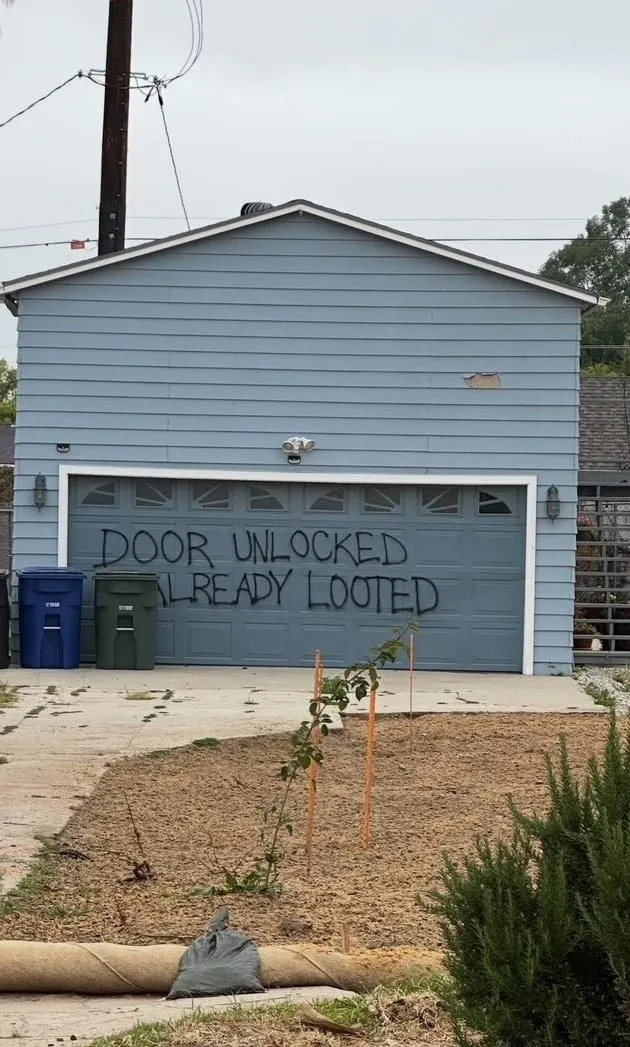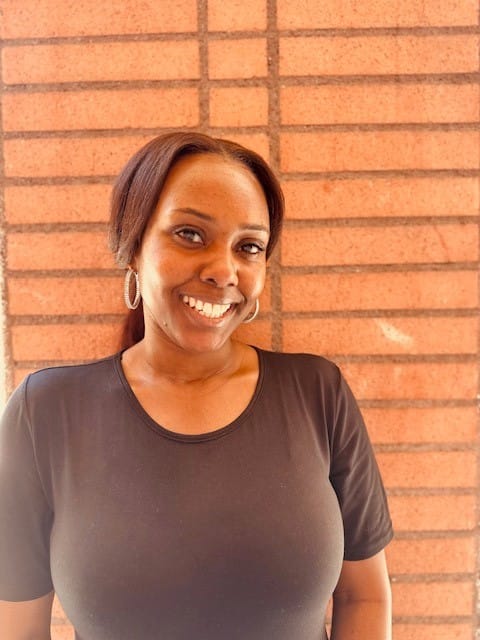When the Eaton Fire swept through Altadena and Pasadena, it didn’t just burn land and structures. It disrupted generations of family roots, forced people from their homes, and left entire neighborhoods in turmoil. This is more than a news story to me; this is my home. I was raised in this community. These are my streets, my neighbors, my people. And it’s because of that deep connection that I feel called to help amplify the voices of those who have been suffering quietly, long after the flames went out.
In the immediate aftermath, over 33,700 insurance claims were filed across Southern California related to the Eaton and Palisades fires. State Farm alone reported receiving approximately 12,500 fire-related claims, paying out over $3.12 billion, with projections to pay more than $7 billion in total.
And yet, behind these numbers are real families still struggling, fighting delays, underpayments, or outright denials from insurance companies.
I’ve heard firsthand how hard it’s been. My husband’s parents, who have lived in Altadena for decades, are locked in a frustrating, month-to-month battle with Mercury Insurance just to get reimbursed for basic losses. Each call is another negotiation with the adjuster, another reminder that, in my husband's words, “These adjusters act like it’s their money.” Their experience is just one example of what so many families in our community are still enduring.
I sat down with my husband, Joseph Collins, to talk more in-depth about what his parents have gone through and how the fire affected them, the ongoing fight with Mercury, and the emotional toll it’s taken on their family.
Interview with Joseph Allman-Collins
Akeya: What was your family’s first encounter with Mercury Insurance that began this whole ordeal?
Joseph: Right after the fire, Mercury gave out the first Additional Living Expense (ALE) payment around $5,000, and helped rent a RV. A lot of people were going for Airbnbs and hotels, but my parents wanted to stay close. The house and my parents' classic cars were still there, and they were afraid to leave it behind, due to the people looting and taking advantage of the chaos. The fire hadn’t even cooled, and people were walking around the neighborhood breaking into homes. That fear kept my parents from choosing the safety and ease of a proper rental. They didn’t want to risk losing the things they had left.
So instead, they chose to stay in an RV parked right in front of our damaged house day and night, in the aftermath of one of the most traumatic experiences of their lives.
It’s heartbreaking when you think about it. They should have been in a safe, clean Airbnb able to rest, and begin rebuilding. But they weren’t given that peace due to the price gouging of hotels, Airbnb and rentals and no vacancies within the surrounding cities. They had to camp in front of their home because fear pushed them into survival mode.
We were trying to understand our policy, especially the ALE section. But the adjuster Mercury gave us was not helpful at all. It wasn’t until she went on vacation that a temporary adjuster gave us an expense report and some actual support.
Even now, we’re still submitting receipts that are covered under our ALE and still getting denied. The adjuster has never provided a list of what’s covered or not covered. It’s been months, and my parents are still living in a trailer in front of the house.
Akeya: Did you talk to anyone to get legal advice or help with filing a complaint?
Joseph: Yeah, in February we went to a workshop at John Muir High. The California Department of Insurance had reps there to explain what rights policyholders have. We learned that if you file a complaint, the department will mediate and hold Mercury accountable to respond in a timely manner.
Akeya: Were you able to follow through and file?
Joseph: We’re currently working on it now. For the last week and a half, we’ve been putting together a full discovery package with emails, texts, everything from our first contact with Mercury up until now. It’s tedious, but once we have the full timeline, we’re filing a complaint with the Deputy Commissioner.
Akeya: How has the adjuster's handling of your claim affected your ability to rebuild?
Joseph: It’s like a stall tactic. We’ve submitted estimates for pack-out, pool remediation, the roof, structural work, the kitchen even got major water damage from the water cannon from the fire trucks.
Every time we send a bid from our contractor(s), the adjuster sends comps—no explanation, just, “this is what we’re going with.” For a while we didn’t know any better. But after talking to people in the industry, we learned we can challenge it.
Still, it’s exhausting. My parents are tired now, they want back in their house, but the adjuster is standing in the way of that happening.
Akeya: Can you talk about the emotional toll this has taken on your family?
Joseph: My family moved here from Oakland in the early '60s. They bought the house in 1968. I'm the third generation in that home. That’s the last thing my dad has of his mother—Carmen Estrada.
The night of the fire, all I could think was I can’t let our legacy go. We went back in and with the help of my friends and neighbor we managed to save 9 homes from burning.
Emotionally? It hit me about 3-4 days after the fire. At first, you’re in survival mode. But once things calmed down, it was like everything hit at once.
We were standing in the front yard on the day of the fire—me, my dad, friends who helped fight the fire, and people were walking by just staring, like, “How did your house survive?” It’s burned into my mind.
My mom still gets triggered by sounds, smells, loud noises. My dad doesn’t talk about it much. But I see the weight on him every day.
Akeya: What kind of support do you think families like yours really need right now?
Joseph: Legal help. Affordable, accessible, legal support. Most of us aren’t insurance experts. We blindly trust these companies to do right by us, but since the Eaton Fire… honestly, it’s made us see things differently and realize that they are not for us and not operating in good faith.
People are underinsured, don’t know their rights, or don’t even know where to start. We need attorneys or firms doing pro bono work, because a lot of people can’t afford to fight.
Every house affected is a unique situation. There’s no one-size-fits-all. What we really need is help navigating all of this, because we didn’t plan for a fire. None of us did.
Unfortunately, Joseph and his family are not alone. Mercury has come under scrutiny for its handling of wildfire claims. For the Eaton and Palisades fires, Mercury Insurance received approximately 2,700 claims, including 650 homeowner policies and 150 other property policies deemed total losses. While the company has publicly stated its commitment to wildfire victims, policyholders have filed complaints alleging slow responses, rotating adjusters, and denied coverage. The Better Business Bureau also lists multiple complaints related to fire claims and service delays.
Trouble for Renters
And it’s not just homeowners. Renters are faced with hardships as well. I’ve spoken to tenants who say they had to clean their own units after landlords failed to remove toxic ash and smoke damage. Some are still waiting for their security deposits to be returned. Others say landlords simply stopped responding. These are working-class families, elders, single mothers, and students trying to find stability after a tragedy.
In March 2025, a group of tenants in Altadena rallied outside their apartment complex, demanding urgent repairs after enduring months of unlivable conditions. Many had been without electricity since January, trapped in dangerous, unsanitary spaces. Their frustration was clear: they felt abandoned by both landlords and the systems meant to protect them. The Sun reported that residents faced threats from property management, including intimidation involving police and immigration authorities, as they sought basic services like hot water and electricity.
These stories are far from isolated. The Los Angeles County Department of Consumer and Business Affairs (DCBA) received over 915 complaints of price gouging following the fires—nearly 90% tied to rent hikes. Another housing watchdog reported 2,800+ cases of rent gouging across L.A. County, identifying over 500 listings where landlords raised rent by more than 50% after the fires.
Need for Legal Aid
Legal assistance is crucial for these survivors, but finding affordable or pro bono help is a significant hurdle. Many families in Altadena and Pasadena are looking for legal advocates who understand their fight and can help them stand up to insurance companies that delay or deny rightful claims. It’s not just about money—it’s about justice, restoring hope and the basic right to rebuild. It is clear that our community’s resilience is strong, but resilience should never be mistaken for acceptance. We have to keep pushing for change, because recovery should mean restoration not survival.
This article is my way of standing up for those still fighting to be acknowledged. Recovery doesn’t end with the headlines. The system may be done, but the community is far from okay. The people of Altadena and Pasadena are still rebuilding—not just homes, but lives. They deserve real help, affordable legal support, and, most of all, to be heard.
Interview with Joseph on Channel 5 with Andrew Callaghan (starts 05:18)
Editor’s note: Akeya wrote this piece while navigating the loss of her own home in the May 2025 Covina apartment fire. We’re grateful for her perspective as both a writer and a survivor.
Disclaimer: The content shared in our blog is for informational purposes only and should not be considered legal, medical, or financial advice. Please consult with a qualified professional for guidance specific to your situation.

